8 Major Chicken Diseases: Causes, Symptoms, Treatment and Prevention Tips
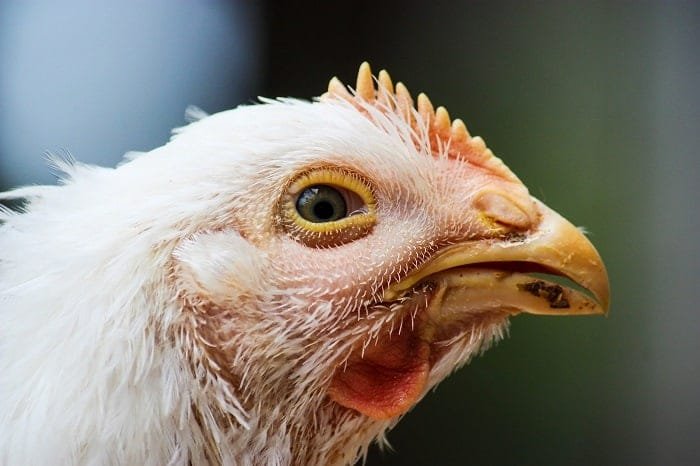
Chickens are very easy to take care of but when they come down with a disease, things can become very difficult. Hence, whether you are raising chickens in your backyard or for commercial purposes, you must beware of chicken diseases.
A lot of poultry farms fold up because they are unable to control certain chicken diseases that hit their farm. I’m very sure you don’t want to end up like one of those farms and that is why you are reading this guide.
In this article, you will learn about the common chicken diseases that destroy poultry farms. Also, you will learn how to easily identify, treat and prevent the entrance of such diseases into your farm.
This chicken disease manual holds a lot of information that will help you in controlling diseases on your poultry farm.
So, just sit tight and read till the end. Let’s get started…
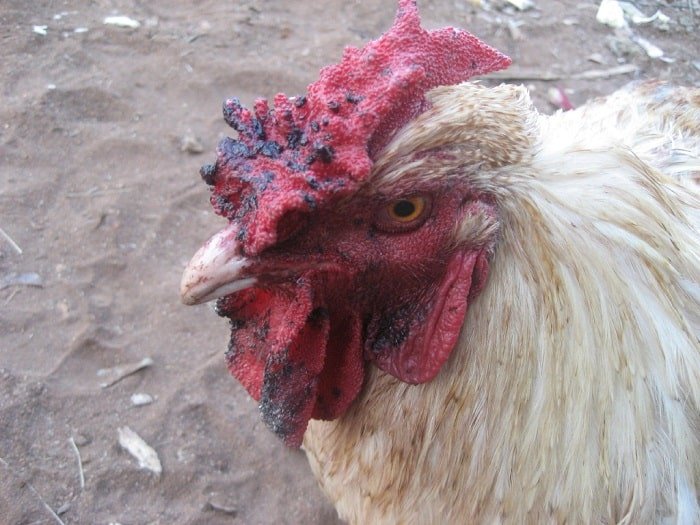
What are chicken diseases?
Simply put, chicken diseases are diseases that affect chickens. Obviously!
These diseases can make your chickens very sick and may even lead to their death. But, It doesn’t end there… Some chicken diseases may spread to humans, thereby causing serious illnesses.
Some of them include salmonellosis, campylobacteriosis, and avian influenza viruses.
As a poultry farmer, you must do all you can to avoid these infectious diseases that can cause the death of your chickens.
Classification of chicken diseases based on how they affect the birds
There are different types of poultry diseases out there waiting to consume your birds. As a result, it is important to know how they enter the flock so that you can easily identify and stop them from spreading. Here are some of the chicken diseases based on how they affect the birds.
1. Infectious poultry diseases:
This type of chicken disease is very common and easily spread from one bird to another on your farm. The major causes of infectious poultry diseases are viruses, bacteria, and fungi.
When these viruses, bacteria, and fungi enter your poultry farm, they affect the intestines, nerves, and lungs of the birds. Also, they tend to lower the bird’s immune and reproductive systems, as well as affect their skin.
Because of how easily infectious diseases spread on the farm, it is best to isolate any bird that has symptoms of the disease. In addition, treat your flock quickly to prevent the further spread of the disease.
2. Metabolic/Nutritional Diseases:
The major causes of metabolic and nutritional diseases in chickens include improper nutrition, an unhealthy environment, and their genetic makeup. A lack of vitamins and essential minerals in the feed of chickens can lead to metabolic diseases. Also, an environment that does not allow the birds to exercise and enjoy proper nutrition can result in this type of disease.
Part of the symptom of this type of disease is that the birds can become lame, or have soft bones and beaks. In addition, there may be a sudden reduction in egg production as the symptoms persist.
With proper care for your birds, you may be able to remedy this situation. However, these types of diseases may give room to other diseases that may destroy your poultry farm.
3. Parasitic Diseases:
Parasites are organisms that live in or on your chickens and they tend to get their nutrition from the birds. As parasites continue to live on the birds, they tend to cause discomfort and even result in other diseases.
Some symptoms of parasitic diseases include feather damage, irritation, or a change in the color of the chicken poop.
Common parasites that affect chickens include ticks, chicken mites, lice, fleas, and round roundworms.
4. Behavioral Diseases:
When your birds begin to act abnormally, it can cause them to hurt themselves and become sick. Some abnormal behavior of chickens includes aggressive pecking of other birds, eating their eggs, or excessively plucking their feathers.
This could be the result of overheating or overcrowding your chickens in the poultry house.
You will love this article about the 8 Unusual Reasons for High Poultry Mortality.
How do you prevent chicken diseases?
Use the following tips to prevent chicken diseases from ravaging your farm.
1. Maintain proper hygiene:
Maintaining a very high standard of hygiene in your poultry farm is very vital for preventing chicken diseases. Ensure you clean the chicken coop all the time. Regularly replace the litter in your poultry farm with fresh wood shavings.
Also, ensure that you wash every piece of equipment that you use for feeding the birds, especially the waterers.
2. Enforce strict biosecurity measures:
By enforcing strict biosecurity measures on your farm, you will prevent diseases from entering your flock. You must not allow everyone to enter the poultry house. Even your workers must disinfect themselves thoroughly before entering the farm.
Block every hole and open space in your farm to prevent rats and stray birds from entering your farm. This is vital because rats and stray birds can be carriers of dangerous diseases that can affect your flock.
3. Ensure the poultry house is well-ventilated:
Chickens need a lot of fresh air to survive. Therefore, you must build your poultry house in such a way that allows enough air to enter.
Always change the woodshaving in the poultry house so that it does not contaminate the air with the smell of ammonia. You must also ensure that your poultry house is high enough to allow the smell of ammonia to exit the poultry house.
4. Do not overcrowd the chickens in the chicken house:
Overcrowding your chicken house is one easy way that will allow diseases to spread in your flock. When you overcrowd your chickens in a small space, it induces stress. As a result, the birds will become weak to fight against the infections and diseases that may affect them.
Therefore, you must ensure that you provide enough space for your birds to live freely.
5. Follow the proper vaccination schedule:
Vaccination is very important to prevent diseases and infections. Vaccines tend to boost the immune system of birds and make them strong enough to combat many kinds of diseases.
You must follow a strict vaccination schedule for chickens to achieve the best results.
6. Buy your birds from disease-free sources:
Sometimes, the fault may come from the hatchery. Many hatcheries can be very careless about hygiene and vaccination. As a result, they sell disease-carrying birds to their customers.
If you fall victim to buying this type of bird, then you may suffer a loss due to an outbreak on your farm.
7. Feed your chickens with nutritional meals:
Food is medicine! And the case is not different with chickens. Feeding your chickens nutritious meals is a good way to prevent diseases on the farm. Ensure that the feed is fresh and free of molds.
Also, ensure that you feed them regularly and never allow them to stay hungry. If they stay hungry for too long, it may result in cannibalistic behavior.
8. Protect the birds from extreme weather:
Extremely harsh weather can make your birds sick and uncomfortable. When you expose your birds to cold weather conditions, your birds may come down with the flu.
Also, excessive heat in the poultry house can lead to stress and make your birds sick. You must make sure that you observe your birds at all times to see how they react to certain weather conditions and make the temperature good for them.
Helpful article: How to reduce poultry mortality and make more profits
Common chicken diseases, symptoms, treatment and prevention techniques
To be more specific, let’s see some of the diseases that affect chickens. Also, you will get to learn about their symptoms and how to treat them. This will help you to better manage your chicken farm in case of an outbreak of diseases.
Here are the common diseases that may affect your chickens.
1. Newcastle disease:
The Newcastle disease is one of the many poultry diseases that pose a serious threat to chickens.

What is the cause of Newcastle disease?
This disease is a result of viruses that invade poultry farms. You may bring this disease to your farm when you touch an infected bird or if the virus exit on your clothes or shoes.
Also, wild birds can bring this disease to your farm, so you must avoid them.
What are the symptoms of Newcastle disease?
When your birds contract Newcastle disease, it affects their respiratory system. As a result, you may notice that your birds are having difficulty breathing.
Also, you may notice that they have murky eyes, experience discharge from their nose, and a reduction in egg-laying.
In severe cases, the birds can experience twisting in their neck and paralysis in their legs and wings.
How do you prevent and treat Newcastle disease?
This disease usually kills baby chicks. Therefore, a good way to prevent Newcastle disease is by vaccinating your flock.
Also, you must be strict on-farm hygiene and ensure that anyone entering the farm is thoroughly disinfected.
For this disease, prevention is always better than cure as there is no exact cure for Newcastle disease.
2. Infectious bronchitis disease:
Just like Newcastle disease, infectious bronchitis is another disease that can affect your birds. This is a viral disease, which means it can spread throughout your farm through the air.
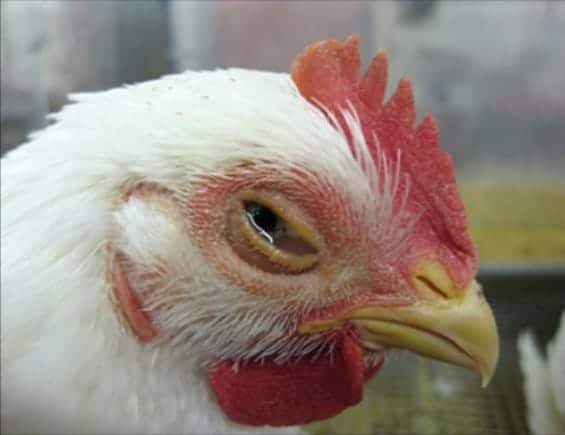
What is the cause of infectious bronchitis?
The cause of this disease is the avian infectious bronchitis virus (IBV).
What are the symptoms of this bronchitis disease?
A common symptom of infectious bronchitis is that your chickens will begin to experience difficulty in breathing. What follows this includes sneezing, snoring, and coughing. Also, there will be some discharge from the birds’ eyes and nostrils as they struggle to breathe.
The birds will no longer consume food and water as they should. As a result, you will notice a reduction in egg production in the case of layer chickens.
How do you prevent and treat infectious bronchitis?
You can easily destroy this virus using heat and disinfectants. Since infectious bronchitis is a result of cold affecting your birds, it will be nice to provide a warm dry place for the birds that are infected.
If you notice the symptoms in your baby chicks, then increase the brooder temperature to optimize environmental conditions.
Otherwise, it is wise that you vaccinate your birds against infectious bronchitis disease.
3. Marek’s disease in chickens:
Marek’s disease is also known as fowl paralysis, and this disease mostly affects chickens between 12 and 25 weeks old.

What is the cause of Marek’s disease?
The cause of Marek’s disease in chickens is a virus that belongs to the herpes virus group. Marek’s disease is a product of a virus that affects your birds when they breathe in pieces of shed skin and feathers from a chick that is infected.
This disease spreads very fast and it is very easy for your birds to become infected.
What are the symptoms of Marek’s disease?
This disease can cause your birds to start growing tumors. Also, you may notice that the iris of your chickens are turning grey, and they may no longer respond to light.
Eventually, the infected bird may experience partial or whole paralysis.
How do you prevent and treat Marek’s disease in chickens?
If your chickens have this Marek disease, it is as good as saying they have chicken cancer. That’s because there is nothing you can do to revive the birds that are infected already. So, if your chicken gets this disease, then it’s best that you dispose of the bird immediately far away from your chicken house.
Even if the bird manages to survive the disease, it will remain a carrier of the disease for life. As a result, the disease may enter a new flock if care is not taken.
To prevent Marek’s disease from entering your poultry farm, you must vaccinate your day-old chicks.
4. Fowl pox:
Fowl pox is a highly contagious viral disease that is common in poultry farming.
Although this disease is different from chickenpox that affects humans, fowl pox can spread through your flock and destroy your birds.
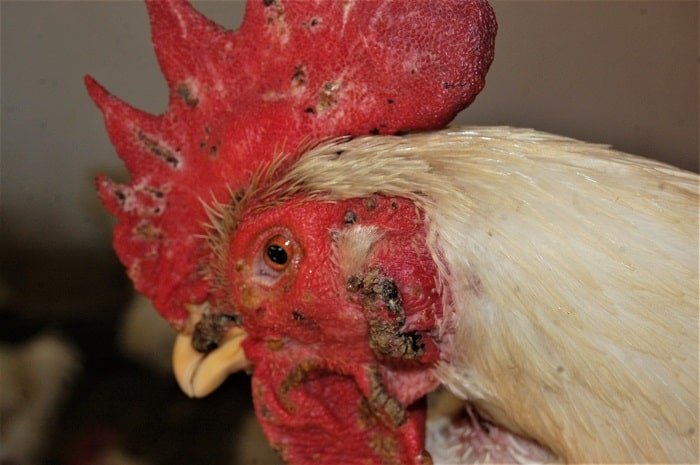
What is the cause of fowl pox disease?
The main cause of fowl pox disease is the Avipox virus. A chicken having this disease can spread it to other chickens through wounds. Also, the disease can even spread to nearby poultry houses if it is not contained.
Mosquitoes can also spread this virus, especially when an infected mosquito bites a chicken in your flock.
What are the symptoms of fowl pox disease?
Fowlpox can come in either wet or dry forms.
In dry form, you will notice cuts or wounds on the areas of your chicken that do not have feathers.
As for the wet form, you will see injuries appearing around the mouth of the chicken and then there may be some discharge from your bird’s eyes.
How do you prevent and treat fowl pox disease in chickens?
There is no treatment for fowl pox, however, the cuts or wounds on your chicken will usually heal within two weeks. Just make sure you quarantine any bird that shows symptoms of this disease.
Also, spraying the surrounding of your farm to kill mosquitoes is a good way to curb the spread of this disease. In addition, ensure that you do not keep dirty water around the farm so that mosquitoes will not find a breeding place.
Another best way to prevent fowlpox disease is by vaccinating your flock. This will strengthen their immune system before any invasion of the disease.
5. Coccidiosis in chickens:
Coccidiosis disease is one of the biggest causes of economic losses to poultry. It is a protozoan disease of poultry that mostly affects chickens between 3 – 6 weeks of age.
The mortality as a result of this disease can be very high, especially if you are using the deep litter poultry housing system.
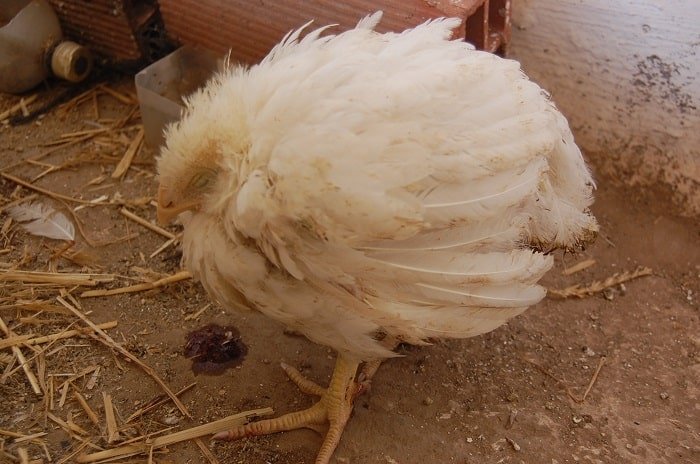
What is the cause of coccidiosis disease?
Coccidiosis disease affects chickens as a result of a protozoan parasite known as Eimeria. This parasite invades the cells of the chicken intestine and causes damage to the bird.
There are seven different species of the genus Eimeria and each species act independently of the other. That means, if you stop one species of the parasite, another species can still thrive in your chickens.
What are the symptoms of coccidiosis disease?
Because the protozoan causing this disease live in the cells of the intestine, they tend to damage the gut walls. This further causes loss of appetite, diarrhea, ruffled feathers, weight loss, and inability to absorb nutrients.
Also, you can be able to identify coccidiosis diseases in chickens by observing the chicken poop. Chickens suffering from coccidiosis disease usually have loose droppings. Also, you may notice bloodstains, fluid, and mucus on their poop as a result of the internal injury they have in their intestine.
How do you prevent and treat coccidiosis disease in chickens?
Coccidiosis disease is one of those chicken diseases for which prevention is better than cure. However, you can still control this disease using antibiotics and other medications that will kill the parasite.
The best solution is to vaccinate your birds using anti-cocci vaccines. You can administer the vaccine to your birds by adding it to their drinking water when they are between the ages of 5 and 9 days.
Ensure that you keep food areas, brooders, and coops clean and dry to avoid the spread of coccidiosis.
6. Bumblefoot in chickens:
The bumblefoot disease is not a contagious disease, however, it makes living very difficult for your birds.
That is because this disease affects the feet of your chickens and makes them swell.
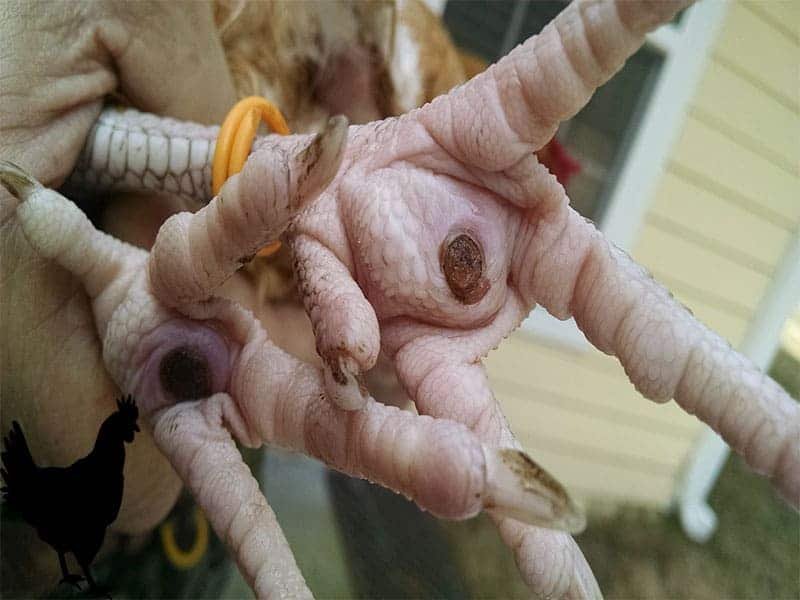
What is the cause of bumblefoot disease?
The bumblefoot disease happens when a chicken accidentally cuts or injures its foot. This cut can happen when the chicken is digging in the garden, scratching around in mulch, or when they are running around on rough surfaces.
The injury is not the problem, but trouble begins when the cut gets infected.
What are the symptoms of bumblefoot disease?
As a result of the infection, your chicken’s foot will begin to swell. This swelling can go on to swell the leg completely.
How do you prevent and treat bumblefoot disease in chickens?
Since bumblefoot disease is a result of cuts on your chicken’s feet, it is advisable that you keep sharp objects away from them. Dispose of broken bottles far away from your garden and in areas where your chickens scratch often.
Also, always keep an eye on your birds to know when they start leaping as a result of pain. If the pain turns out to be cut in the foot, you can wash and disinfect it to prevent the disease from building up.
7. Coryza in chickens:
Coryza disease is a kind of bacterial disease that affects chickens.
This disease is very contagious and can easily spread throughout your flock, causing massive destruction.
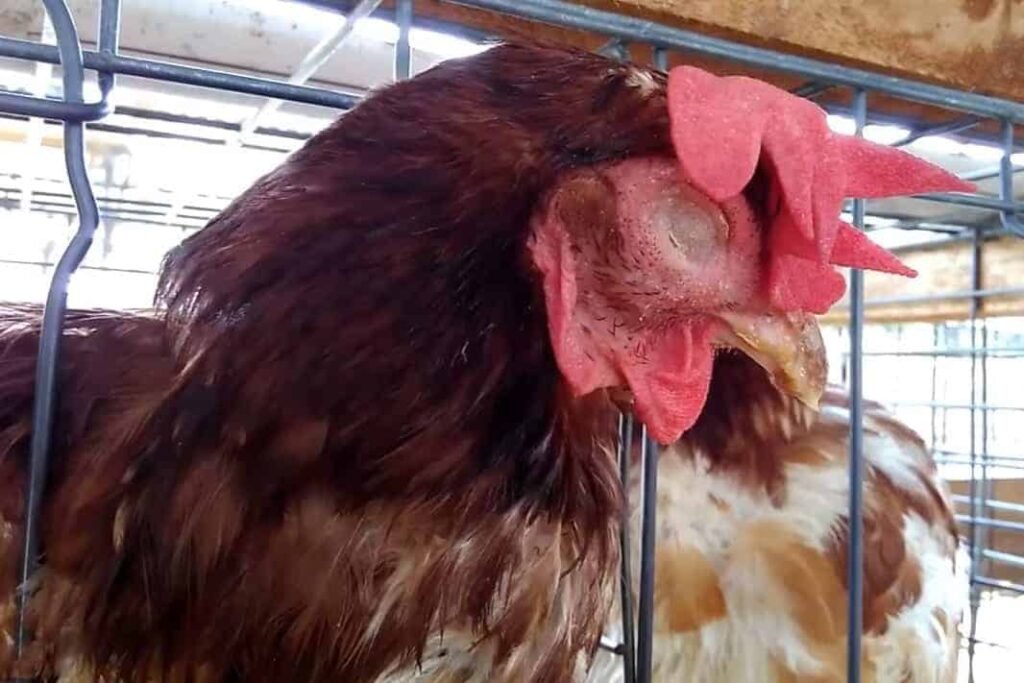
What is the cause of coryza disease?
Coryza disease is caused by a bacterium known as Hemophilus gallinarum.This disease will usually arise when you allow a bird carrying the disease to mix with your flock.
Also, this disease can spread through contaminated water and contaminated surfaces.
What are the symptoms of coryza disease?
This disease will cause the head of your birds to become swollen. The swelling will go as far as shutting the eyes of infected birds and their combs will also be swollen.
What follows will be a slimy discharge flowing from their eyes and noses. At this point, they will stop laying eggs, in the case of layers of chicken and they will also have moisture gathering under their wings.
How do you prevent and treat coryza disease in chickens?
Unfortunately, there is no vaccine to stop coryza disease in chickens. As a result, you must put in a lot of effort to prevent the disease from entering your poultry farm.
If you notice any chicken in your flock that is experiencing symptoms of this disease, then you need to remove it immediately. Otherwise, that bird will remain a carrier of the disease for life which is a risk to the rest of your flock. Be sure to discard the body afterward so no other animal becomes infected by it.
Since the disease is spread through contaminated water and surfaces, ensure that you clean and disinfect all dirty surfaces within the reach of the birds.
Also, ensure that you keep contaminated birds and their carcasses very far away from your farm. By taking these preventive measures, your chickens should be safe from this disease.
8. Fowl cholera:
Fowl cholera is a contagious, bacterial disease of birds that can increase the death of chickens on your farm.

What is the cause of fowl cholera disease?
Fowl cholera disease is caused by the bacterial, Pasteurella multocida. Your birds can contract this disease when wild animals having this disease mix with your flock.
Also, the fowl cholera disease can come from food and water that are contaminated with the disease.
What are the symptoms of fowl cholera disease?
A bird having fowl cholera disease will usually have greenish or yellowish diarrhea.
Also, you will notice obvious joint pain or lameness in your chickens, and difficulty in breathing, and some may have darkened heads or wattle.
How do you prevent and treat the fowl cholera disease?
Just like many other diseases of chicken, fowl cholera does not have any specific treatment. So, you have to stick with preventive measures so that you don’t experience the disease on your farm. A good preventive measure would be to vaccinate your birds for this disease.
Also, you must close every hole in your farm to prevent wild animals from bringing this disease into your farm.
If by some chance your chicken survives this disease, it is still not safe to keep the chicken with the rest of the flock. The reason is that even though the chicken is showing signs of healing, it is still a carrier of the disease. As a result, it can still spread the disease to other birds on your farm.
Hence, it is better to remove all infected birds and destroy their carcasses completely.
Conclusion
There are many other types of chicken diseases that affect poultry farms. Sadly, the end product of these diseases is that they cause economic losses to farmers. As a result, it is important that you learn how to identify them and stop their spread on your farm.
You must always pay attention to your flock so that you don’t miss any sign. Ensure that you vaccinate your birds, feed them properly, and ensure they have clean water regularly.
If the situation gets out of hand and you cannot control the mortality in your farm, then you can invite a vet to diagnose your farm.
I wish you all the best.
Cheers.
References:
- 12 Best Chicken breeds for Eggs – chicken breeds for eggs
- When Do Chickens Start Laying Eggs Regularly?
- How Many Eggs Does A Chicken Lay In A Week?
- Fermenting chicken feed – The definitive guide
- 10 Sure Ways To Stop Chickens from Eating Their Eggs [+Bonus]
- 6 Best Chicken Egg Incubators for Chicken Eggs and Other Birds
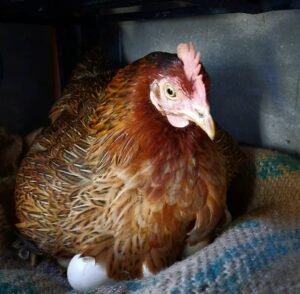
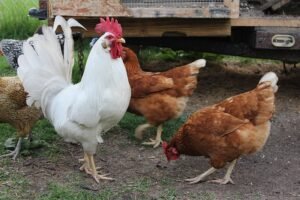

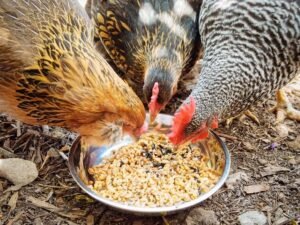
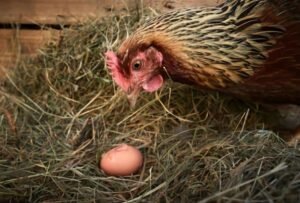

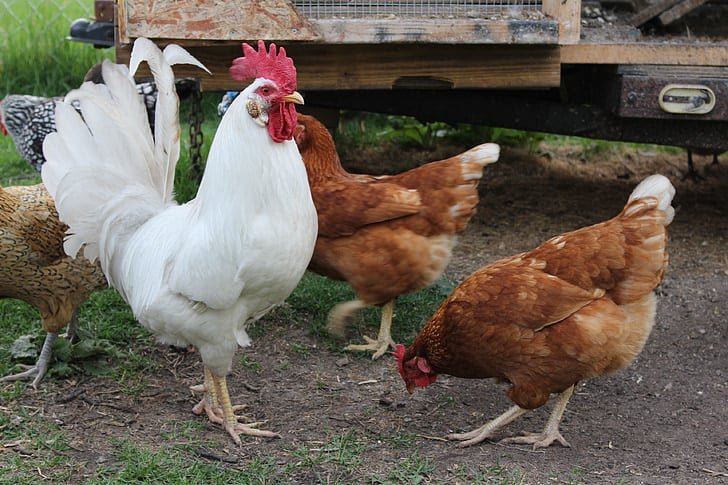
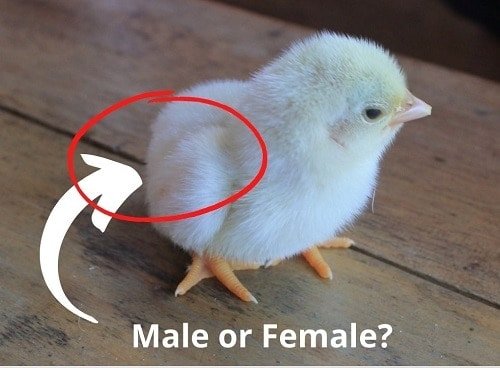

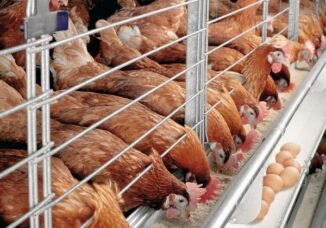

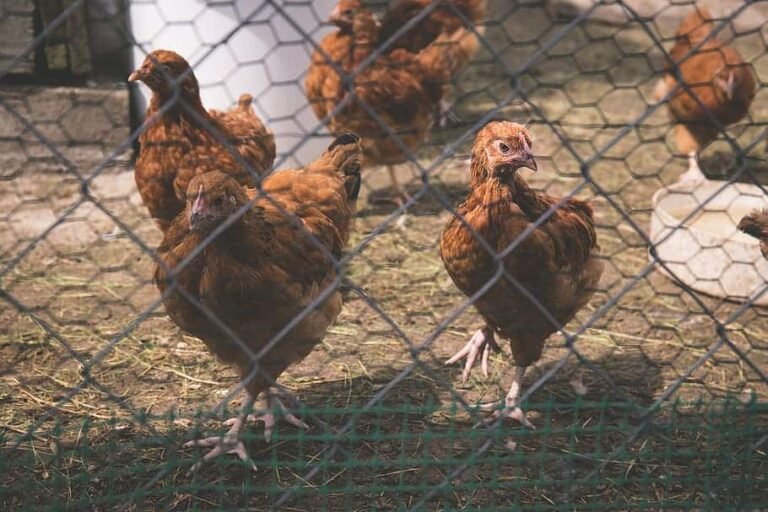
Am so happy for this that’s so great thanks so much for the teachine
Thanks for this good work how i wish those with such good knowledge share so freely. God bless you.
You are welcome Tonny.
Nice content, am impressed with your work concerning the value of agriculture.
Thank you very much for your kind words.
This article is really well composed and educative, you’re doing a lot of good to farmers. Thanks so much.
Thanks for your kind words.
I love your work so simplified, detailed and interesting to read. Thank you
Thanks a lot for your kind comment.